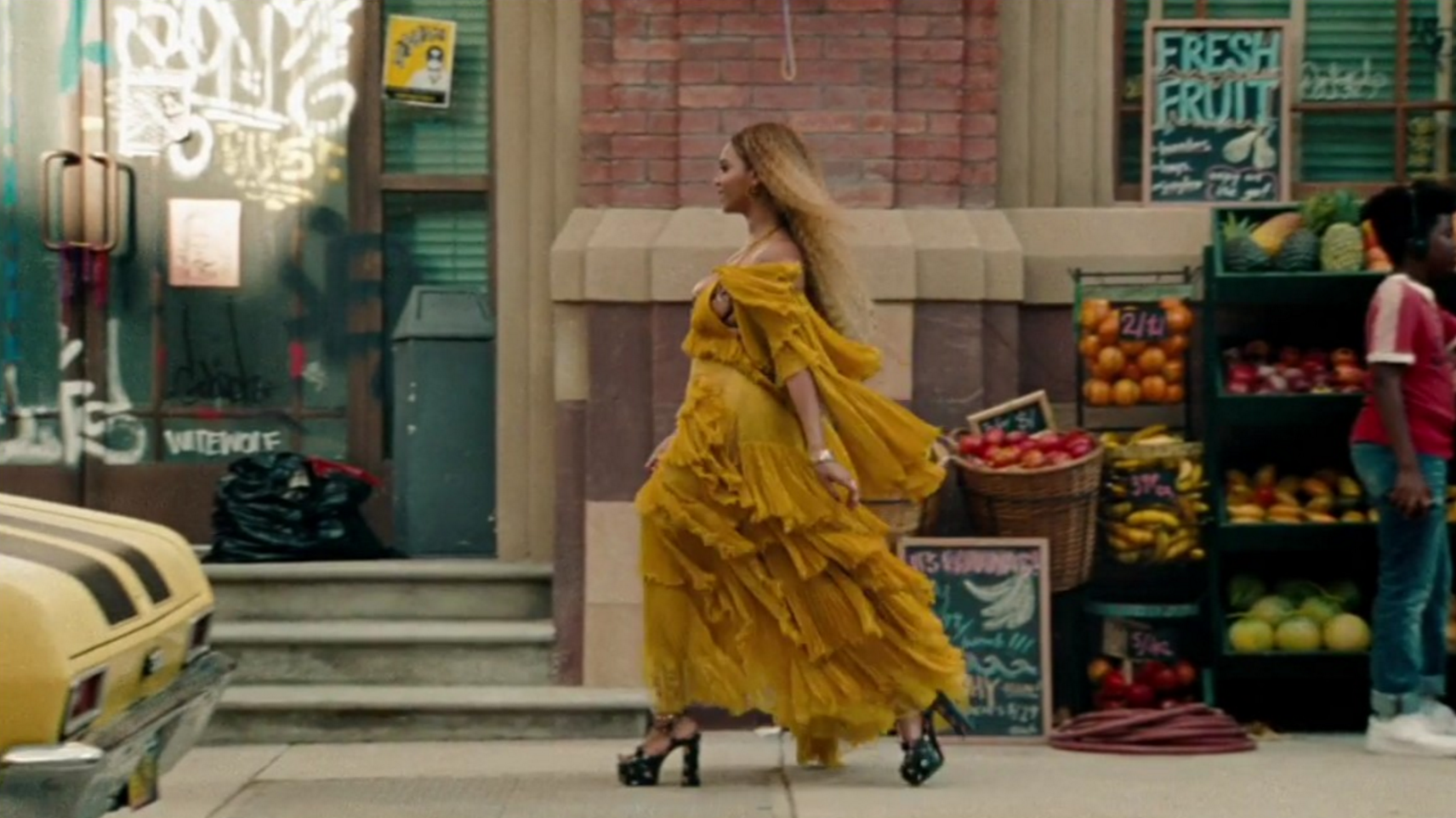Your Recipe to LEMONADE

Image of Beyoncé available under fair use.
Beyoncé’s “Lemonade”:
From what this kind of surprise album means for the industry and methods of music distribution (hint: what it can and can’t do for Tidal) to the kinds of memes it’s brought to fruition, there are multiple pieces about the visual album cropping up everywhere. From The New York Times, to The Guardian, and Rolling Stone, a lot of people have got something to say. Some people even have something to say about the things those people have to say. In fact, according to NPR, Queen Bey has not only revolutionized the way western music releases work—she’s “galvanized the entire thinkpiece-industrial complex” too. This oversaturation of pop culture journalism can make it hard to differentiate the must-reads from the repeats, or the don’t-let-your-eyes-touch-it-with-a-ten-foot-pole reads. Especially from an intersectional feminist point of view.
So we’ve gone ahead and done it for you.
Without further ado, we present to you a list of some of the most nuanced, diverse, or definitive articles about “Lemonade” from the two weeks:
The Primer: If you still don’t know who Becky with the Good Hair is, or what any of the fuss is about.
“You may have heard that Beyoncé put out an album about her husband, Jay Z. You heard wrong: Lemonade is about one person, and that person’s name is Beyoncé Knowles-Carter.”
There seems to be virtually no album review that can go on to discuss the album without straying from music criticism itself—there is something inherently political in the work, in its visuals, in its sound, and no one can stop talking about it. That something is it’s unapologetic blackness.
“I think what made folks uncomfortable was the fact that she was pulling from not only a blues tradition, but a southern black woman blues tradition.”
From concept to musical detail; American pop music beyond hiphop has indelible roots in African American music traditions like the blues, jazz, and rock n’roll ( don’t let anyone lie to you, even the Beatles borrowed). Read this interview professor Regina Bradley and writer dream hampton to get your music history, and creative culture legacy side of the story.
And then the importance of its emotional reach specifically towards the variety of black women at the heart of it.
“This expectation of black women to suffer in silence is passed from generation to generation. Beyoncé explores this inheritance unflinchingly: “You remind me of my father – a magician, able to exist in two places at once / In the tradition of men in my blood you come home at 3am and lie to me.”
In the song “Freedom” from her visual album Lemonade, Beyoncé’s message almost parallels the worship gatherings that allowed vodou to be practiced in plain sight. The uprising would send now-free Haitians scattered across the Atlantic, and many found their way to Louisiana to lay down their roots.”
Then follow up on the beauty and black diversity at the root of the art, fashion, cinematography, and the community responses of it all:
“Much has been said about how LEMONADE draws influence from Julie Dash’s Daughters of the Dust, but less has been said in these same conversations about how the story of Igbo Landing is central to Daughters of the Dust and how the story of Igbo Landing- an act of mass resistance against slavery-also shows up in a really pronounced manner in the ‘Love Drought’ Video.”
“…the decision to include explicit Yoruba aesthetics in Lemonade is notable. The video also featured the work of Laolu Senbanjo, a Brooklyn-based Nigerian artist, who added his sacred Yoruba practice to the visual album.”




